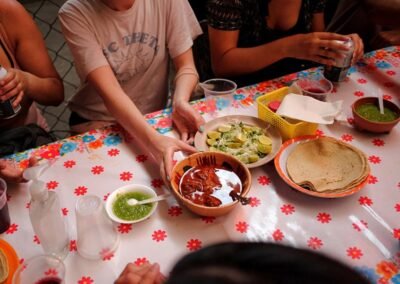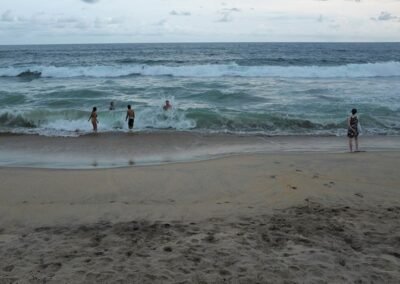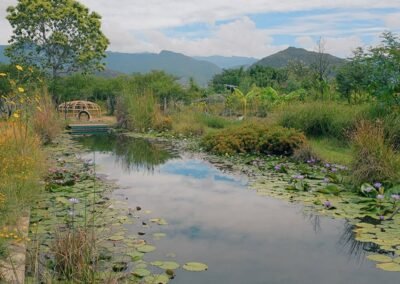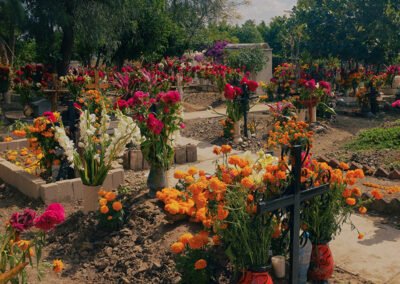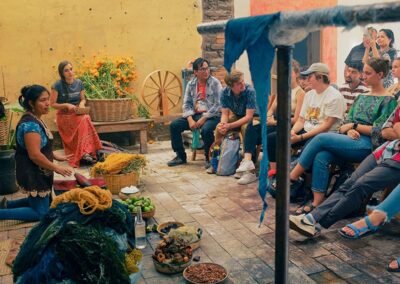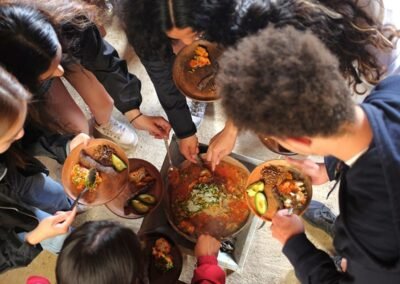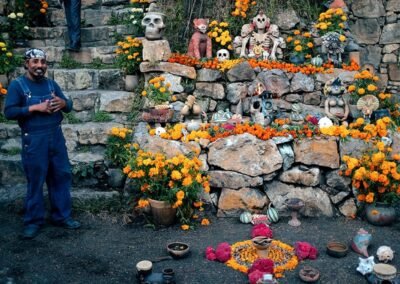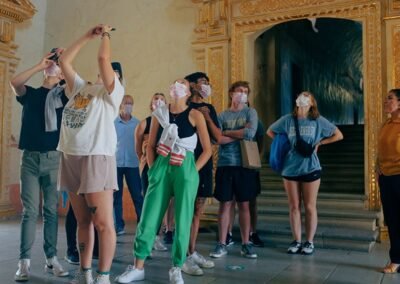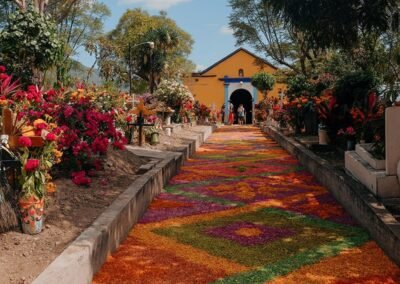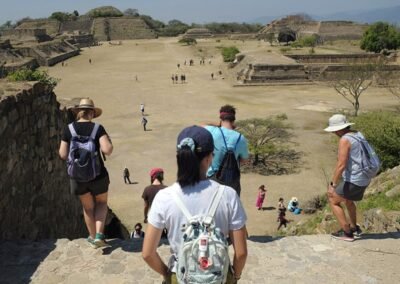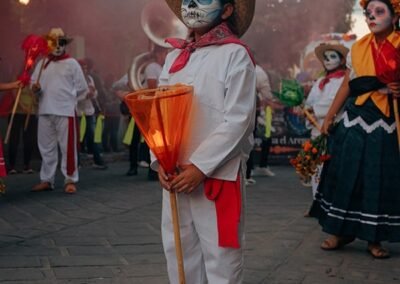Our Model
The collective goals and stories that are essential to our educational journeys.
Our model displays the fundamental princples that orient our work. We aim to connect students with meaningful stories that contribute to a deeper understanding of Mesoamerica.
See Latin America from a different perspective

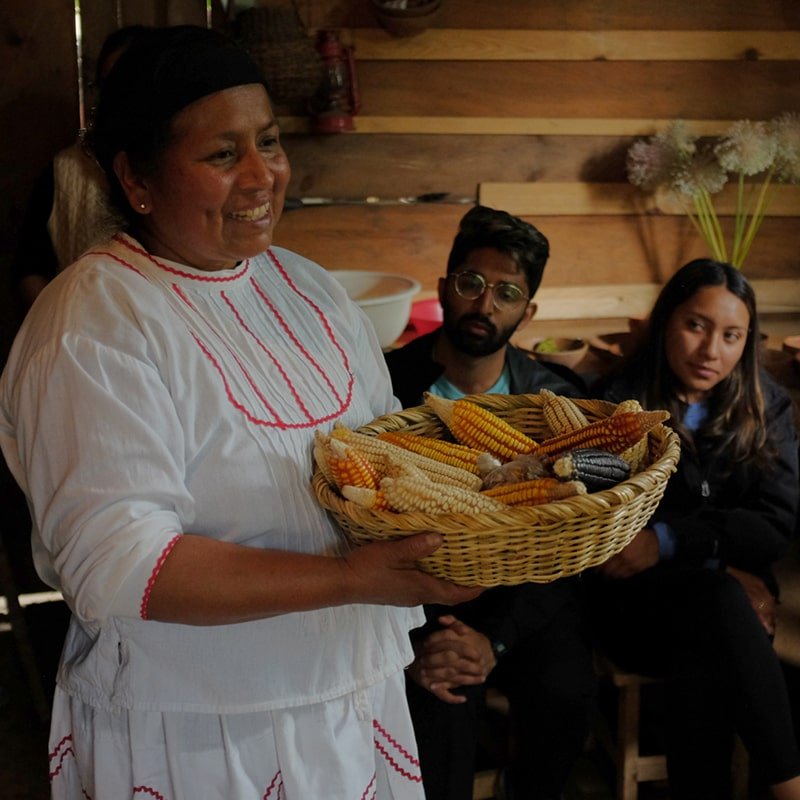
Corn / Origin
Corn and our origins are inextricably linked. Mesoamerican people built advanced civilizations upon the scientific domestication of this extraordinary plant. Our journeys pay homage to the corn, the beans, and the squash which have all become so elemental to our very existence. Corn is our identity, it is the blood that runs through our veins. We are made of corn.
Students understand corn's biological evolution and appreciate its unique cultural significance.
Student's appreciate corn's diversity and comprehend why it is so important to preserve its natural form.
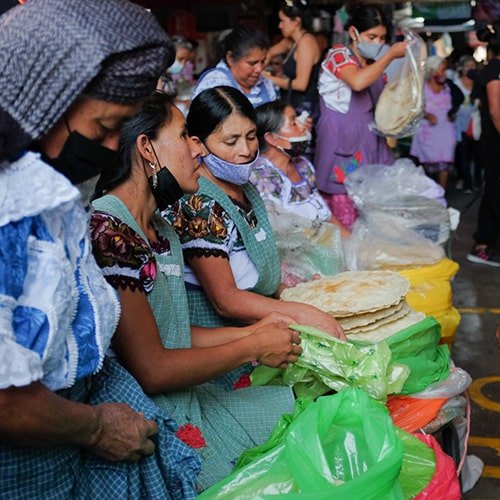
Cultural Diversity
Mesoamerica’s cultural diversity manifests through language, tradition, dress, artisanry, distinct cosmovisions, and much more. It is our priority to share this diversity with students building an awareness and respect for cultural differences.
Students are immersed in cultural activities and traditions from a range of different Mesoamerican peoples.
Students appreciate how cultural distinctions contribute to forming a pluralist region where the unique contributions of every group are valued.

Dance / Artisanry
These forms of cultural expression are manifestations of the joy and creativity that is at the core of identity in Mesoamerica. Our programs visit artisans in their communities providing space for interexchange and interactive activities with students. Mesoamerica is a place of festivity. Our programs seek out opportunities for students to learn about the celebratory dance associated with regional festivals.
Students expand their understanding of ancestral artisanry, comprehending the importance of these crafts to cultural identity.
Students deepen their knowledge of local festivities, learning about how the fruits of collective labor are enjoyed through communal fiestas.
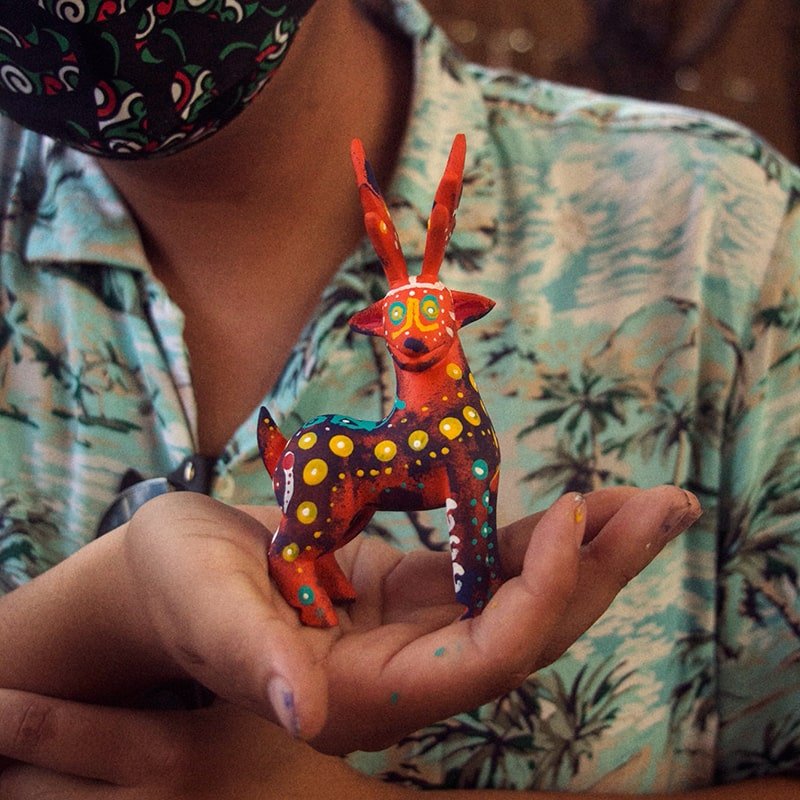
Community / Education
Mesoamerican indigenous communities are diverse and incredibly complex. Our experiences display how communities prioritize autonomy, cooperativism, and sustainability combatting the nation-state industrialization model. Equally as important is education. Mesoamerican communities educate their populations in distinct ways and our programs organize communal inter-exchanges so that we can learn from each other.
Students learn about the unique forms of communal organization in Mesoamerica.
Students cultivate the skills to compare communal development models of cooperativism and localized resource management with modern industrial models.
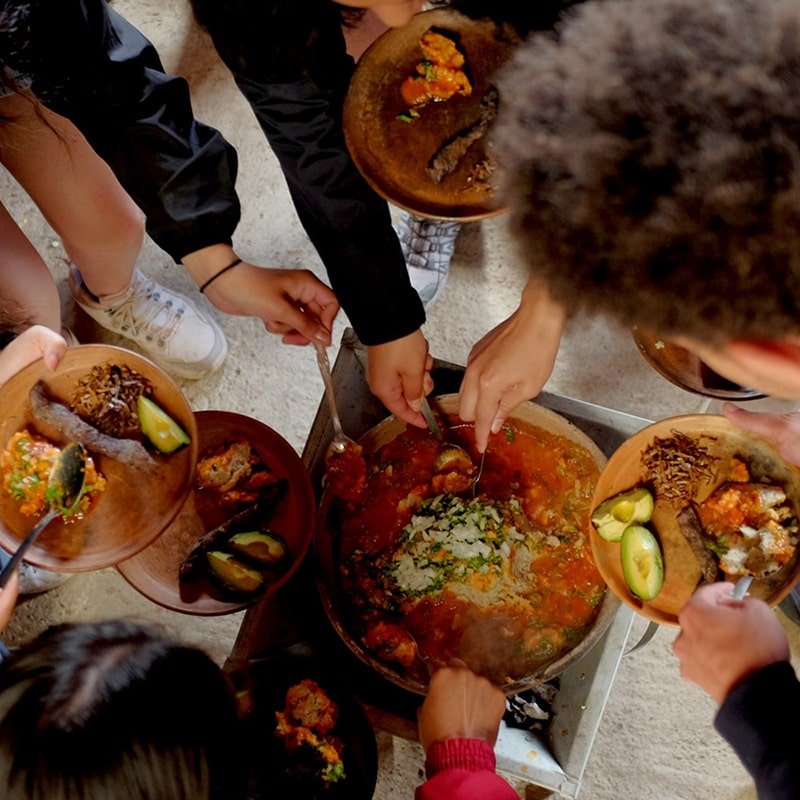
Gastronomy / Agriculture
Locally sourced agricultural systems that prioritized organic seasonal products is essential to sustainable Mesoamerican cuisine. The local gastronomy is world-renowned for tremendously complex recipes reflecting centuries of agricultural innovation. Our programs put food at the heart of the experience with students sampling cuisines from all over the region learning how recipes have evolved over time.
Students feel immersed in the local gastronomy and have opportunities to prepare regional food through cooking classes.
Students are aware of the history behind essential agricultural discoveries that sustained advanced Mesoamerican civilizations.
Students possess the tools to analyze benefits and drawbacks of communal agricultural systems in an increasingly globalized world.

Archeology / History
Our programs provide students with special opportunities to visit archaeological sites of influential Mesoamerican civilizations. Professional archaeologists and local community guides paint pictures that illuminate the vibrant past of these destinations. Students are immersed in the history of Mesoamerican societies and develop an understanding of how this historical trajectory impacts present-day realities.
Students are able to make important links between Mesoamerican civilization’s past and how indigenous peoples resisted colonialism, preserving ancient tradition.
Students possess a strong understanding that indigenous people have not all perished in Mesoamerica, but are still present and actively shaping the region.

Social Movements / Resistance / Autonomy
Mesoamerica is ripe with social movements advocating for an end to corruption, respect for women’s rights, communal autonomy, and environmental conservation. We believe these resistance efforts offer excellent opportunities to study the local issues in the region. Our programs invite civil society leaders to share their stories of struggle with students in hopes of inspiring collective activism for the causes they care about.
Students grasp how street art and public displays of resistance form an integral part of local social movements.
Students feel inspired by civil society leaders to engage in activism in their communities at home.
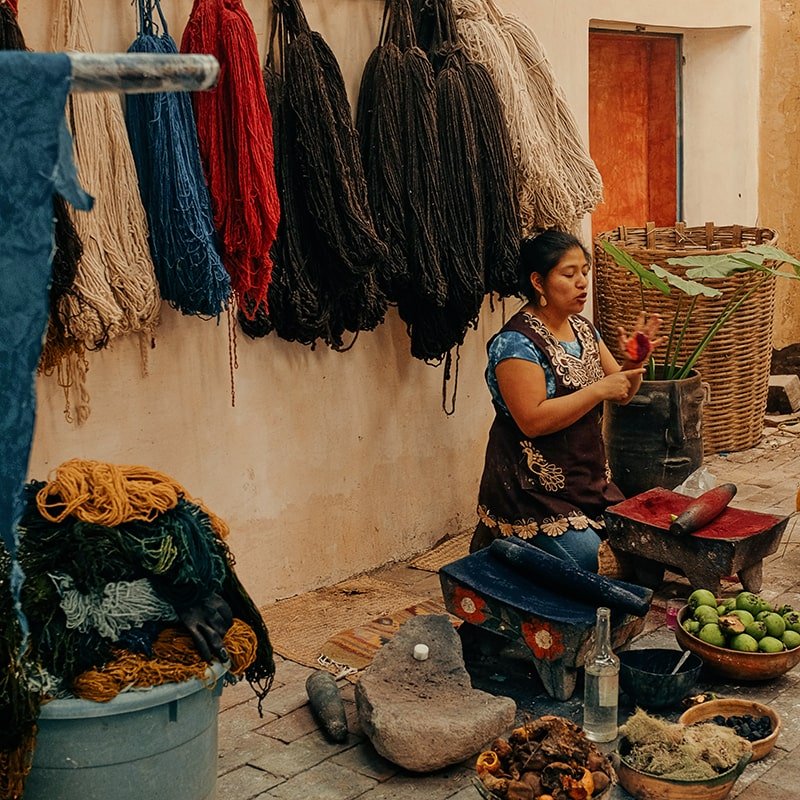
Colors / Textiles / Multi-generational Learning
Colors adorn the streets of Mesoamerica and decorate the natural landscapes. Whether it’s through traditional dress or different plants on a hike, our goals are to envelope students’ senses with Mesoamerica’s vibrant colors. Students will learn about how ancient textile crafts have been passed down through generations and form an integral part of cultural identity.
Students appreciate how textile crafts are passed down through generations valuing the specialized knowledge it takes to elaborate such exquisite artisanry.
Students learn about how these ancient crafts represent an inextricable link between humans and the natural landscape.
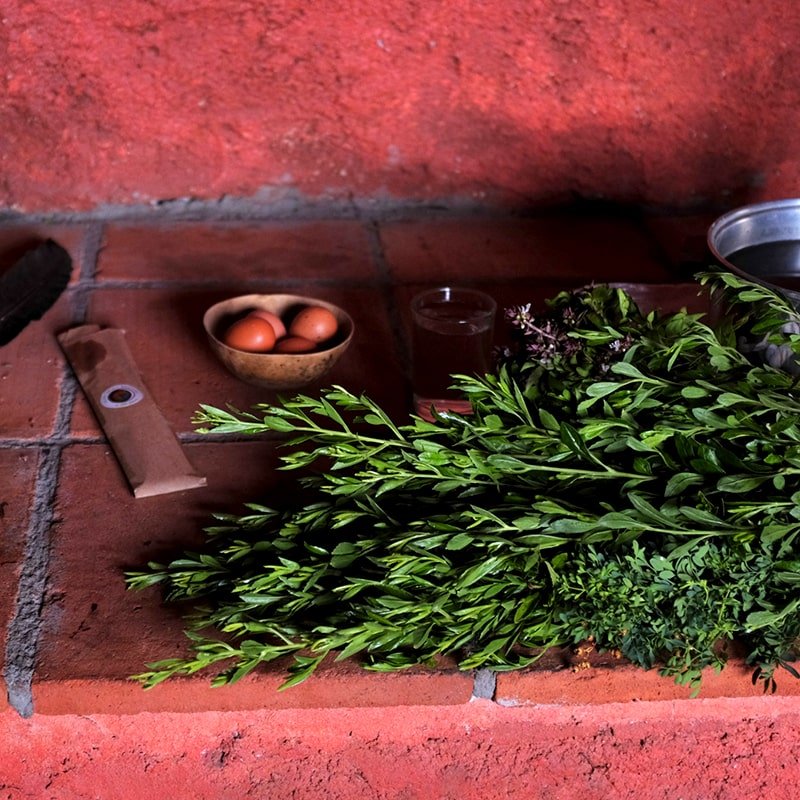
Traditional Medicine
Corn and our origins are inextricably linked. Mesoamerican people built advanced civilizations upon the scientific domestication of this extraordinary plant. Our journeys pay homage to the corn, the beans, and the squash which have all become so elemental to our very existence. Corn is our identity, it is the blood that runs through our veins. We are made of corn.
Students understand corn's biological evolution and appreciate its unique cultural significance.
Student's appreciate corn's diversity and comprehend why it is so important to preserve its natural form.
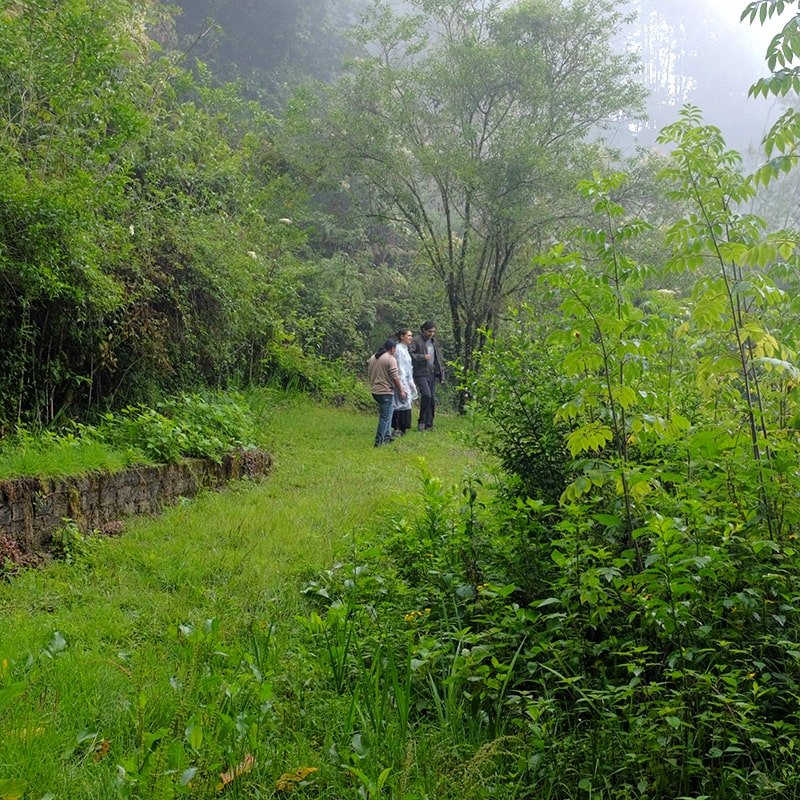
Ecology / Biodiversity
We share with students the profound interconnectivity of the forest, providing different strategies for students to interact with nature. The forest is not only a natural place for recreation, but a medicine cabinet replete with traditional remedies for illness. Mesoamerica is one of the most biodiverse regions of the world and students have the opportunity to explore pristine natural reserves with local experts that explain why preserving these ecosystems is of the utmost importance.
Students cultivate a spiritual connection with the forest appreciating its significance in providing ample traditional medicine remedies for local communities.
Students learn about the tremendous biodiversity of Mesoamerica and the regional strategies for protecting wilderness reserves.

Business / Cooperativism / Microfinance
Mesoamerica is filled with examples of communal financial solidarity. Cooperatives and microfinance organizations are a prominent part of local economies incentivizing sustainable development strategies. Students will be exposed to indigenous community business models in industries like ecotourism and textile production offering ample opportunities for networking.
Students will network with artisans, communal leaders, and local entrepreneurs exchanging ideas and getting inspiration for future projects.
Students will be introduced to innovative business models in the region, cultivating a deeper understanding of the evolving economic situation.

Religion / Syncretism
Mesoamerica is a profoundly religious and spiritual space. Syncretism is defined as the amalgamation of different religions, cultures, and schools of thought. Students will learn about this essential phenomenon in Mesoamerica where indigenous peoples have combined certain natural deities with Catholic saints for centuries.








